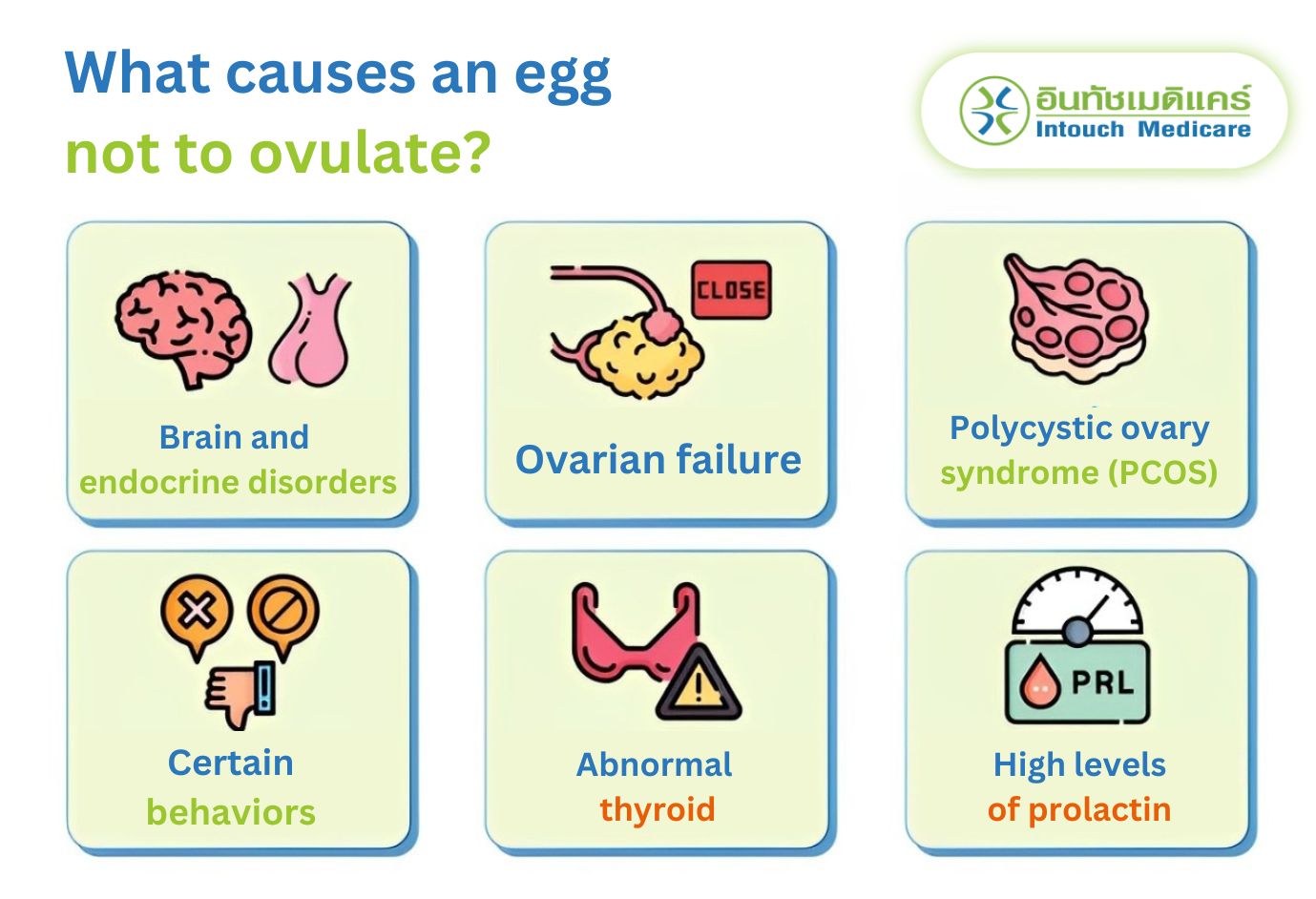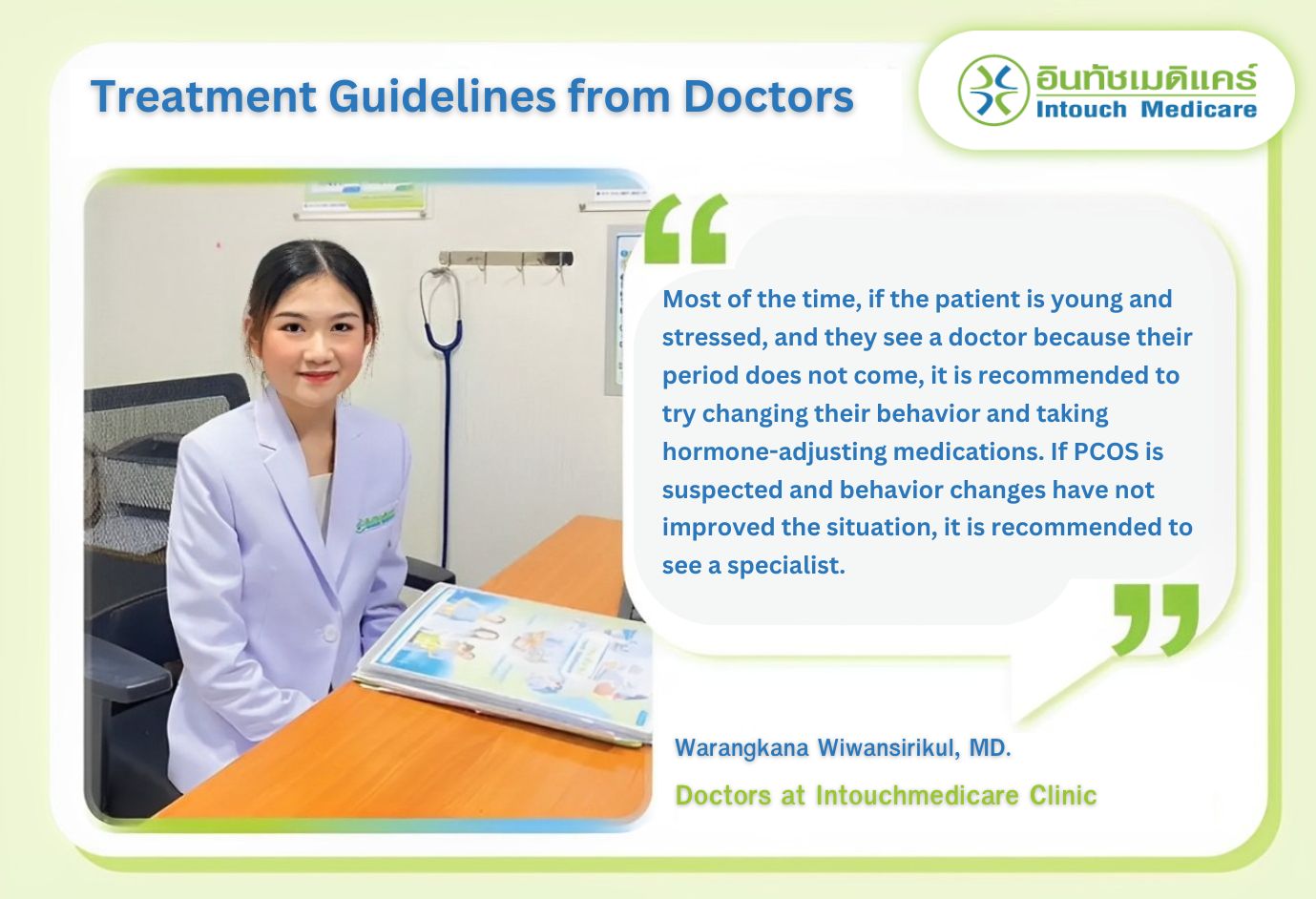What is the cause of not ovulating? How is it related to PCOS?

Ovulation is a common occurrence in women of reproductive age. But if it happens suddenly, what about 'ovulation'? Is this considered an abnormal symptom? How does the absence of ovulation correlate with the symptoms of polycystic ovary syndrome (PCOS), and can it be treated? This article has the answers.
Interesting Topics to Know About Ovulation

It is caused by abnormalities in the brain and pituitary gland.
Ovarian failure can result from genetic predisposition, exposure to ovarian toxins, and autoimmune diseases.
Being under stress, exercising vigorously, losing weight in a short period of time, being underweight, or overweight.
Having an abnormal thyroid condition.
Prolactin hormone is produced |

I Don't Ovulate; Will I Have Irregular Periods?
If the egg does not ovulate, it can cause irregular menstruation, such as a lack of menstruation or periods that come infrequently and unpredictably.
If I Don't Ovulate, Can I Get Pregnant?
If someone does not ovulate, they will not be able to get pregnant because there are no eggs available for fertilization, ![]() which can lead to infertility problems.
which can lead to infertility problems.
Read more : PCOS and Pregnancy : What Prospective Parents Need to Know
What to Do if the Egg Refuses to Ovulate?
If it is found that the eggs do not ovulate, the doctor will determine the cause and address the initial issue, such as :
If the patient is under a lot of stress, then the stress must be eliminated.
Control your weight to ensure it is neither too high nor too low.
Refrain from strenuous exercise.
Eat a balanced diet that includes all five food groups.
Observe your own symptoms. If there are other abnormal symptoms such as headaches, staggered walking, blurred vision, overeating, abnormal weight gain or loss, easy tiredness, or palpitations, take note.
Warangkana Wiwansirikul, MD. |
Treatment for Ovulation Issues
The treatment of ovulation depends on the cause of each condition. Treatment guidelines include behavior modification, weight loss, stress reduction, medication such as egg stimulants, and surgery.

"Most of the time, if doctors see young patients who are stressed and come in because their period did not come, they will consider the possibility of PCOS. If behavior adjustment does not improve the condition and other issues are suspected, the patient is recommended to see a specialist. ![]()
In most cases, an initial ultrasound or hormone adjustment medication may be given first, and blood tests will be performed. There may also be an internal examination, cervical cancer screening, or additional gynecological examinations."![]()
- Warangkana Wiwansirikul, MD. (General practitioner at the Intouchmedicare clinic) -
Interesting Articles
For more info and make appointment
Hot Line 081-562-7722
Composer : Warangkana Wiwansirikul, MD.
Last edited : 19/06/2024

